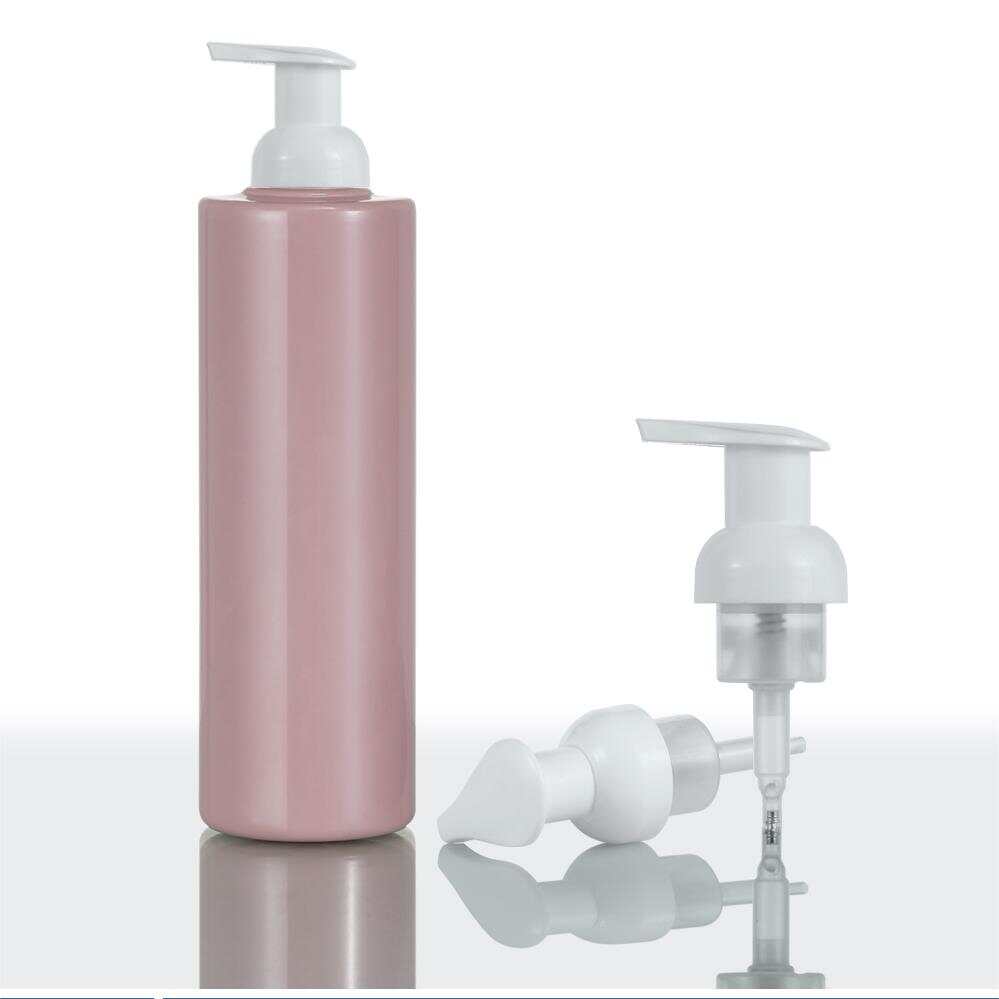Email format error
Email cannot be empty
Email already exists
6-20 characters(letters plus numbers only)
The password is inconsistent
Email format error
Email cannot be empty
Email does not exist
6-20 characters(letters plus numbers only)
The password is inconsistent


Have you ever wondered why foam hand soaps are becoming increasingly popular in both households and commercial settings? What makes a hand soap foam pump a preferred choice over traditional liquid soap dispensers? In this comprehensive guide, we will explore the benefits, uses, and various aspects of hand soap foam pumps to help you understand why they might be the perfect addition to your hygiene routine.

A hand soap foam pump is a type of dispenser designed to turn liquid soap into a foamy lather as it is dispensed. These pumps typically use a combination of air and liquid soap to create a rich, fluffy foam that is easy to spread and rinse off.
The mechanism of a foam pump involves a special pump head that mixes the soap with air as it is pushed through a mesh screen. This action creates the foam, which is then dispensed into your hands. The pump itself is often adjustable, allowing you to control the amount of soap dispensed with each pump.
Foam soap is known for its effective cleaning properties. The foam consistency ensures that the soap spreads evenly across your hands, providing thorough coverage and better removal of dirt and germs. This makes foam soap an excellent choice for maintaining high hygiene standards.
Foam soap dispensers are more economical than liquid soap dispensers because they use less soap per wash. The foam's air-to-soap ratio means that less product is needed to create a rich lather, reducing overall soap consumption. This efficiency can lead to significant cost savings over time, especially in high-traffic areas like public restrooms and commercial kitchens.
Hand soap foam pumps are user-friendly, making them suitable for people of all ages. They dispense the right amount of soap with each pump, reducing waste. Additionally, refilling these dispensers is straightforward, often requiring just a simple unscrewing of the pump top and pouring in the liquid soap.
Foam soap rinses off more easily than liquid soap, which means that it requires less water to remove all traces of soap from your hands. This can contribute to water conservation efforts, especially in areas where water usage needs to be minimized.
Since foam soap dispensers use less product overall, the frequency of replacing soap containers is reduced. This leads to less packaging waste, making foam soap an environmentally friendly option.
Manual foam pumps are the most common type found in homes and businesses. They are operated by pressing the pump head down, which dispenses the foam soap. These are cost-effective and easy to install, making them a popular choice.
Automatic foam pumps use sensors to detect hand movement and dispense soap without the need for physical contact. These touchless dispensers are ideal for maintaining higher hygiene standards, as they reduce the risk of cross-contamination. They are particularly useful in healthcare settings, restaurants, and other public areas.
When selecting a foam pump, consider the capacity and size that will best suit your needs. For high-traffic areas, larger dispensers that require less frequent refilling may be more convenient. For personal use at home, smaller, more compact models may be sufficient.
Foam pumps are available in various materials, including plastic, stainless steel, and glass. Choose a material that fits your aesthetic preferences and durability requirements. Stainless steel models, for instance, are highly durable and resistant to corrosion, making them ideal for long-term use.
The design and aesthetics of the foam pump can also play a role in your selection. Modern designs that match your bathroom or kitchen décor can enhance the overall look of your space. Additionally, some foam pumps come with customizable labels or color options to better align with your personal style.
Regularly cleaning your foam pump ensures it operates efficiently and hygienically. Disassemble the pump and wash all parts with warm water and mild detergent. Rinse thoroughly and allow all parts to dry completely before reassembling.
Not all liquid soaps are formulated for foam dispensers. Ensure that you use soap specifically designed for foam pumps to prevent clogging and maintain optimal performance. Many manufacturers offer refill bottles that are labeled as foam-compatible.
If your foam pump stops working correctly, it might be due to a clog or airlock. Try priming the pump by pressing it several times in rapid succession. If this does not work, disassemble and clean the pump thoroughly to remove any blockages.
Incorporating a hand soap foam pump into your hygiene routine offers numerous benefits, from enhanced cleaning efficiency and cost savings to environmental sustainability. Whether you opt for a manual or automatic dispenser, these pumps provide a convenient and effective way to maintain cleanliness. By choosing the right foam pump for your needs and maintaining it properly, you can ensure a superior hand-washing experience that promotes health and hygiene.
No, it's important to use liquid soap specifically designed for foam dispensers to prevent clogging and ensure proper foam production.
Regular cleaning every few weeks is recommended to prevent buildup and ensure the dispenser operates smoothly.
Yes, especially in public or high-traffic areas, as they reduce the risk of cross-contamination and maintain higher hygiene standards.
Foam soap rinses off more easily than liquid soap, requiring less water to wash off completely, thus conserving water.
Stainless steel is highly durable and resistant to corrosion, making it an excellent choice for long-lasting foam pumps.